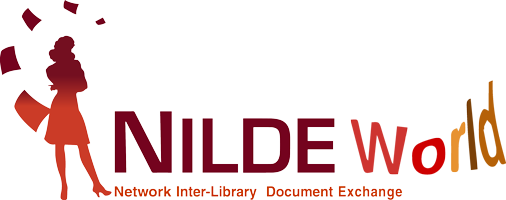Tu sei qui
How do you handle copyright in NILDE?
Copyright law in the European countries has been reformed after 2001 according to the EU Directive 2001/29/EC on the armonisation of certain aspects of copyright and related rights in the information society (usually referred to as the SocInfo Directive).
The ILL activity carried out by libraries would be allowed by the SocInfo Directive’s article 5 on limitations and exceptions (article 5 (2) c) on “specific acts of reproduction made by publicly accessible libraries, …”). According to authoritative scholars 1,2 ILL, even with “point-to-point” electronic transmission of the “graphic document”, does not appear in contrast with the SocInfo Directive. However, electronic document delivery involves an array of complex copyright issues, many of which were raised in a Court case involving Subito, the German library document delivery service provided by the main German libraries, as well as Austrian and Swiss libraries. Publishers, fearing the economic damage caused by ILL due to cancellations of current journals subscriptions, questioned the compliance of electronic document delivery services with German copyright law and the SocInfo Directive. As a result, the German law introduced a new copyright provision on electronic document delivery, which was explicitly considered and allowed “under certain conditions”.
Moreover, since limitations and exceptions of the SocInfo Directive are not mandatory to EU member states, they have been adopted in a variety of ways in the national legislations. It is clear that the SocInfo Directive failed in its initial objective of copyright armonisation and that fragmented implementation of exceptions has resulted in increasing barriers to cross-border access to content in Europe, instead than avoiding them.
Document delivery carried out by libraries is an example of such a fragmentation. Some member states clearly discipline it within the framework of library services: UK3, Germany4 and Denmark5 do so. Some other member states, like Spain6 and Italy, do not explicitly mention it and leave it within generic exceptions related to certain reproduction acts allowed to libraries and archives. The Italian law7 allows such reproductions through solely “photocopy, xerox or analogous system”, thus referring to a specific medium. On the contrary, the recently changed UK law spells out a modern and more flexible framework for copyright exceptions for libraries, archives and museums within the boundaries of non commercial research and private study, since it allows librarians to assist researchers and students by providing copies of “limited parts” of a copyright work, “regardless of the medium” in which it is recorded.
In the NILDE Rules and Regulation compliance with copyright law is clearly stated8. Libraries pledge themselves:
- "to request documents on behalf of their qualified users who will undertake it for exclusive personal use for educational and research purposes;
- to send photocopies of the requested documents or to make temporary digital copy (tiff, pdf) of the same for the one and only purpose of accelerating the transmission process; whereas the utilization of the digital copy, unless the existing contractual clauses do not permit otherwise, remains in every case limited to the sole possibility of making it a single hardcopy;
- unless the existing contractual clauses do not permit otherwise, to deliver to the user a single paper copy of the document, destroying any digital copy received.”
Summing up, in NILDE the received digital copy is temporary, it has always to be printed and such printed copy is the only one to be delivered to the end-user. “Unfortunately" several user satisfaction survey conducted within NILDE to assess the ILL services show how important the electronic version of documents is for end users, which, on the other hand, are completely unaware of the copyright and licensing restrictions imposed to their libraries…
Another important aspect to be considered is the restrictions imposed by licenses of e-resources.
